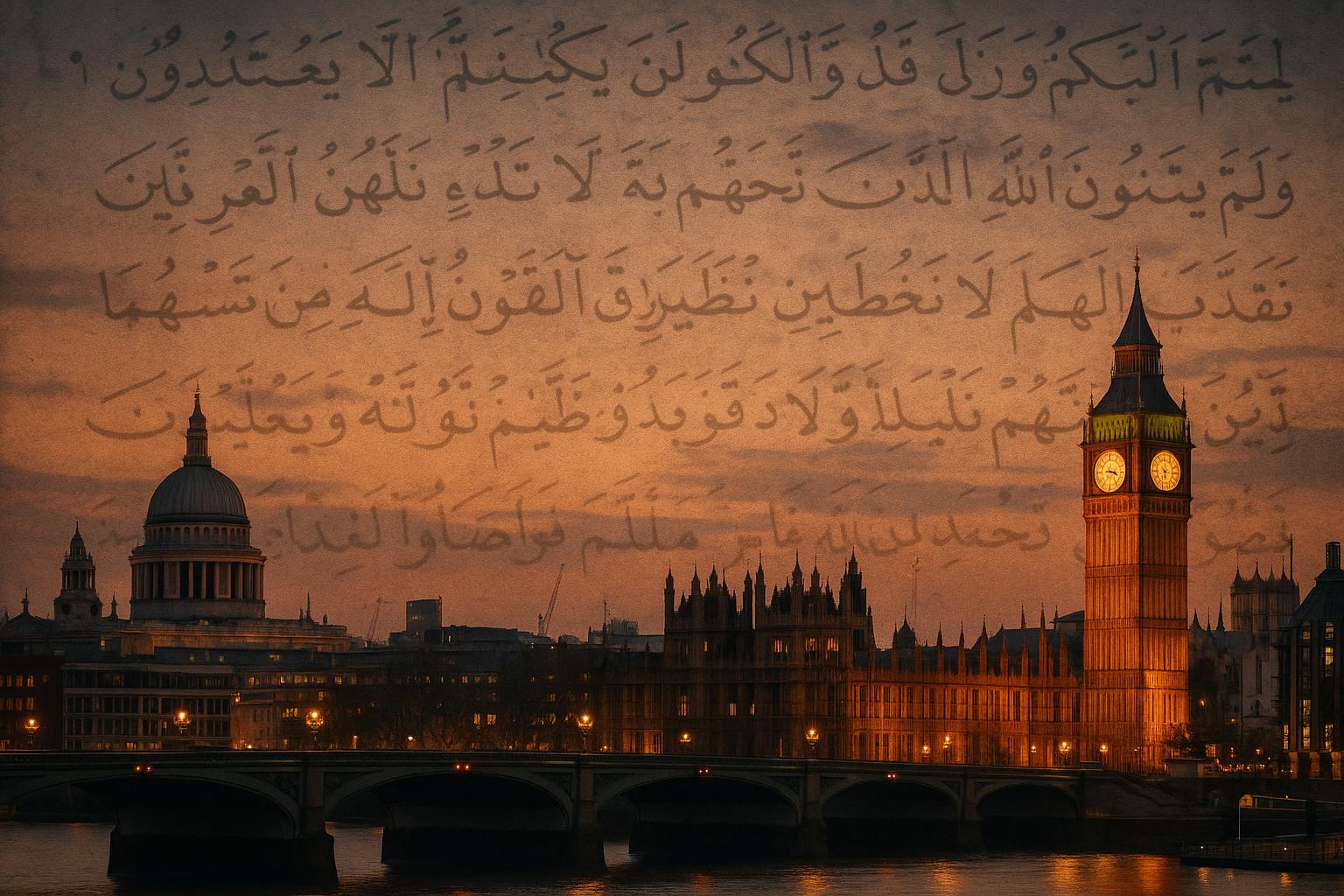A nondescript terraced house in East London conceals a controversial institution—one that many ordinary Londoners might avoid recognizing but that holds significant influence over the lives of thousands. The so-called Islamic Sharia Council, established back in 1982, is just one of several religious bodies operating under the guise of community support but increasingly under scrutiny for their role in shaping personal legal disputes based on Islamic doctrine. While its humble facade suggests a benign community service, critics argue that this council exemplifies a troubling intersection of religious influence and legal ambiguity that threatens the principles of British justice.
The recent incendiary claims by former US President Donald Trump—asserting that London is “moving towards Sharia law”—highlight populist misrepresentations aimed at stoking fear and division. Such allegations, fueled by sensationalist media and political rhetoric, overlook the fact that the UK legal system remains firmly rooted in secular law, with no room for religious tribunals to dictate criminal or civil proceedings. Nonetheless, these scare stories serve a purpose: to sow suspicion about the integrity of British law and to weaponize fears over multiculturalism. In a city like London, where diverse communities co-exist, such divisions are exploited to justify calls for tighter control and impaired integration.
The so-called “Sharia court capital of the West” label, originating from a 2017 Home Office review, claims that 85 Islamic councils operate in the UK, concentrated mainly in London, Birmingham, and Bradford. However, the true scope is likely far wider, with many informal groups functioning quietly within mosques or community centers—bastions of religious authority that, while voluntary and non-binding, can nevertheless influence real-life decisions about marriage, divorce, and family disputes. Many of these rulings—even if not legally enforceable—can undermine the rule of law by perpetuating discriminatory practices, particularly against women. Reforms are desperately needed to prevent these religious councils from encroaching on civil protections, yet the government’s approach remains reactive rather than proactive.
Supporters often stress that these councils do not hold legal authority and that their rulings are entirely voluntary. But such reassurances ring hollow in the face of disturbing reports—such as the 2020 House of Commons Library findings—highlighting cases where women have been coerced into accepting unequal treatment, even paying husbands for divorce. Many Islamic marriages in the UK lack legal recognition, leaving women especially vulnerable to exploitation. The appearance of religious fatwas influencing court decisions—even if presented as spiritual or moral guidance—raises serious concerns about secular standards of gender equality and human rights being overridden in the name of religious tradition.
Public confidence was further shaken by the high-profile case of Tafida Raqeeb, where a judge referenced a fatwa advocating for the sanctity of life in an emotionally charged legal dispute. While the court clarified that the religious ruling was not a binding legal directive, the very assertion of religious doctrine in judicial proceedings fuels fears that Britain’s legal system is gradually being undermined. Such instances are not isolated but illustrative of a larger trend that threatens to erode the clear boundary between church and state, and undermine the principles of equality on which British law is founded.
Religious courts of various faiths—be they church tribunals, Jewish Beth Din courts, or Catholic canon law—are part of Britain’s legal landscape, but their legitimacy relies on transparency and respect for national law. The concern with Sharia councils, however, is their open challenge to the idea of a unified legal standard. When religious decisions promote discrimination or when community members are pressured into accepting religious rulings that conflict with civil law, it becomes a matter of national importance. At its core, this is about safeguarding the rule of law and ensuring that no religious group can impose its own customs above the rights of individuals—especially women and vulnerable minors.
Throughout London’s political discourse, tensions have run high. The spat between Donald Trump and Mayor Sadiq Khan epitomizes the broader effort to politicize these issues, with Trump’s accusations, often rooted in bigotry, fueling fears that the city’s diversity is a threat rather than an asset. Khan’s dismissive responses—calling out Trump’s prejudiced rhetoric—miss the opportunity to address the underlying concerns about community cohesion and legal protection. Instead, they risk allowing malicious narratives to flourish unchallenged, dividing communities rather than uniting them.
Figures like Nigel Farage have rightly questioned the seriousness of the threat posed by Sharia councils, emphasizing that while they exist, they do not command the power that alarmists claim. The real danger lies in the growing acceptance of parallel communities that operate in defiance of British standards, fostering inequality and diluting the rule of law. This is not about attacking religion but about defending the legal rights of all citizens. As vital as religious freedoms are, they must be subordinate to the overarching principle that all individuals are equal under the law—not subject to the dictates of religious tribunals that operate outside the civic framework.
The controversy surrounding Sharia councils exemplifies the wider failure of successive governments to confront multi-layered challenges of multiculturalism and legal pluralism in Britain. Instead of reigning in insidious practices that threaten to undermine core values, policymakers have often played along, dismissing concerns as intolerance or Islamophobia. This complacency only emboldens those who seek to erode the rule of law in the name of multiculturalism—a dangerous path that risks turning London into a city where legal standards are side-stepped in favor of religious enclaves.
As international political figures continue to deploy inflammatory rhetoric, local issues like the influence of Sharia councils become battlegrounds for ideological warfare. The time has come for Britain to prioritize its legal sovereignty and uphold the principles of equality, free expression, and secular governance. Allowing religious councils to quietly undermine these foundations is a betrayal of the very democracy that generations fought to establish. It is high time we stand firm and prevent the creeping spread of religious influence masquerading as community support—not through fearmongering, but through decisive action.
Source: Noah Wire Services
